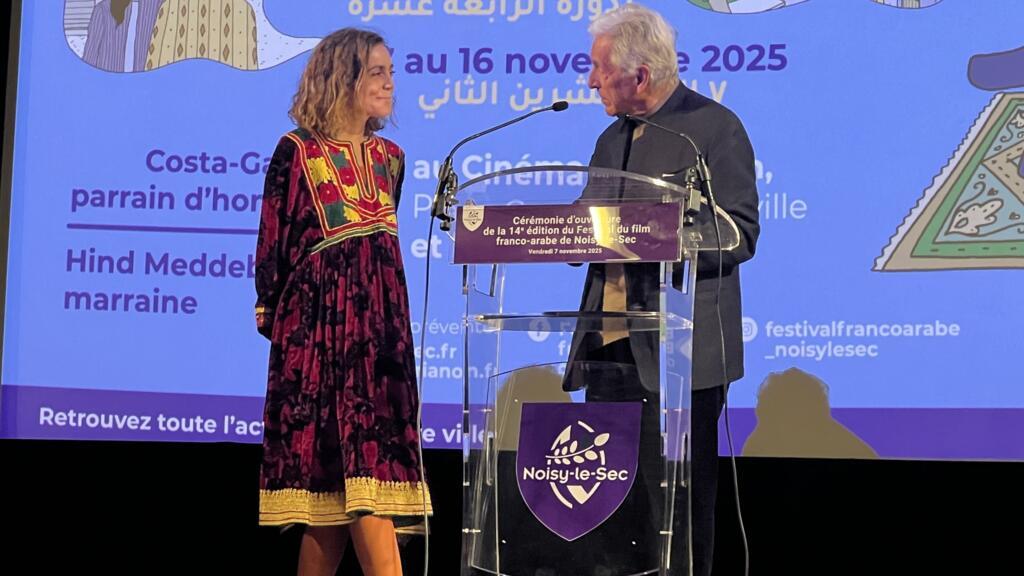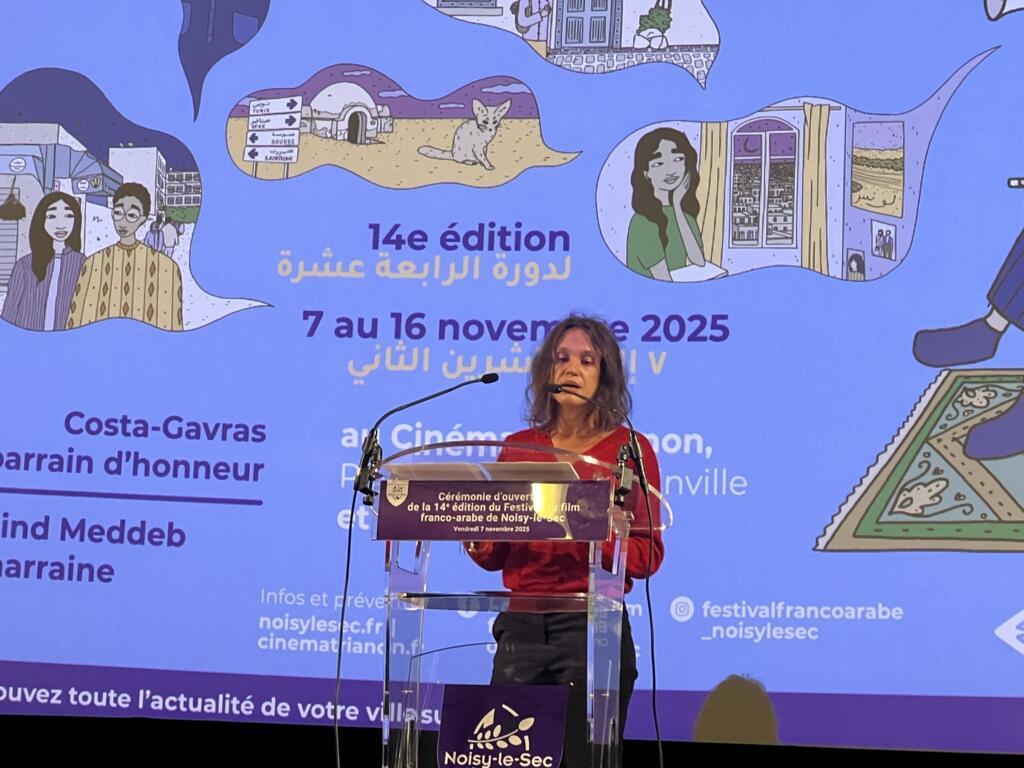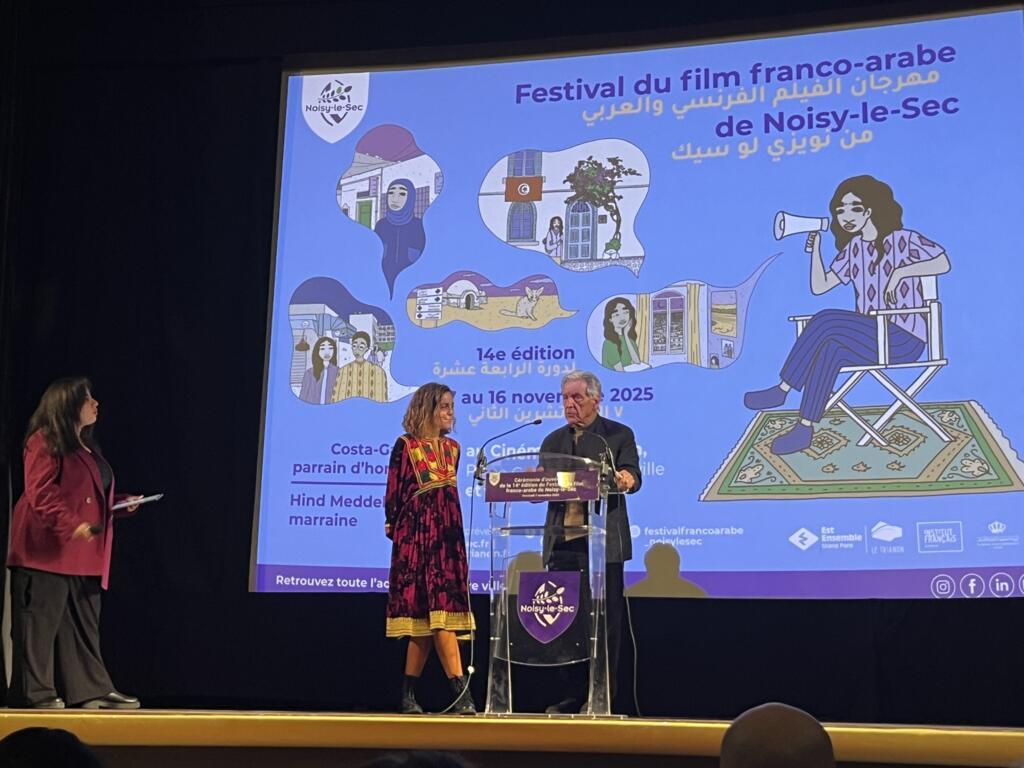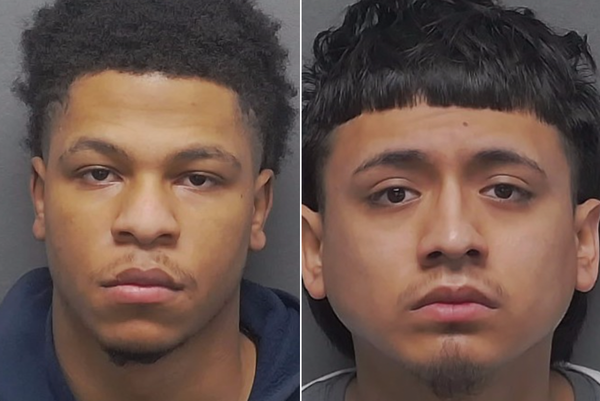
Tunisia took centre stage at this year's Franco-Arab Film Festival in the Parisian suburb of Noisy-le-Sec, which showcases narrative film and documentaries from North Africa and the Middle East.
"In this beautiful cinema, for 10 days we will discuss cinema – that is to say, imagination, experiences and perspectives on the world," said the festival's head of programming Mathilde Rouxel, opening the event on 7 November.
"For 10 days, our eyes will be riveted by images and sounds from Arab countries and diaspora communities, allowing us to dream and travel together from the comfort of our seats in this darkened room."
She went on to tell the audience that, as news reports tell of massacres perpetrated by paramilitaries in Sudan or the GenZ protests in Morocco, the festival aims to offer fresh perspectives on the realities of North African and Arab countries behind the headlines.

Tunisian stories
For this 14th edition, which runs until Sunday, the festival's focus is on Tunisian films.
Rouxel told RFI: "This year we have this focus about Tunisia because they have a huge cinematic [industry], and it was also very interesting for us to move from the east to the west of the region."
In countries where journalists often struggle to address social and political issues, filmmakers can step in, she explained. "Topics like exile, and the need for the youth to find a better future and for some trying to move to Europe."
"We have, for instance, this new film by Ala Eddine Slim... We present his film Agora, which is talking about the post-revolutionary era and the atmosphere now in Tunisia – outside of the capital especially, in the countryside of Tunis. It is, I think, a very important film."
The festival also features short films, as well as those made by directors who have not studied at film school.

Palestine, Sudan, Egypt and beyond
The guest of honour at this year's event is Franco-Tunisian journalist and documentary filmmaker Hind Meddeb.
"I'm French-Arab, like the festival," she said at the festival's opening ceremony. "I grew up in France, so I'm culturally French, but at the same time, my mother is Algerian and Moroccan, and my father is Tunisian, so I always spent my holidays with my family in North Africa."
She added: "And then my mother lived in Egypt, she lived in Syria. So I visited her and I was between these two worlds, between France and Africa, between France and the Arab world."
She said she is continually surprised by the way the Arab and Muslim worlds are represented in Europe and especially in Western media, compared to her own experience of them.
"So, I thought to myself, I'm going to make films to tell stories differently, to show a youth that we don't know here. And so all my films tell the story of young people fighting for freedom," she said
Her latest film Sudan, Remember Us follows young Sudanese activists in Khartoum after the overthrow of the dictatorship of Omar Al-Bashir in 2019, and chronicles the military crackdown that followed.
"Thousands upon thousands of people have been killed in just a few days recently in El Fasher, Darfur," Meddeb reflected, "and the deep causes of the war are often not addressed in the media. All these films I make, I make them for the same reason this festival exists, to tell the stories in a different way."
The festival has also shown Palestinian films, including Palestine 36, directed by Annemarie Jacir, to be released in France in January, and the Iraqi masterpiece The President's Cake, by Hasan Hadi, which chronicles the lives of Iraqis during the United States embargo of 1990-91 following Saddam Hussein's invasion of Kuwait.
The event also showed films from Syria, Lebanon, Saudi Arabia and Egypt.
"We chose a film on Syria under and after Bashar Al Assad, I think it's something that we need to see," Rouxel told RFI. "We chose two beautiful films coming from Egypt as well, The Settlement by Mohamed Rashad and Spring Came On Laughing, by Noha Abel, films that are showing contemporary Egypt in many different ways."







